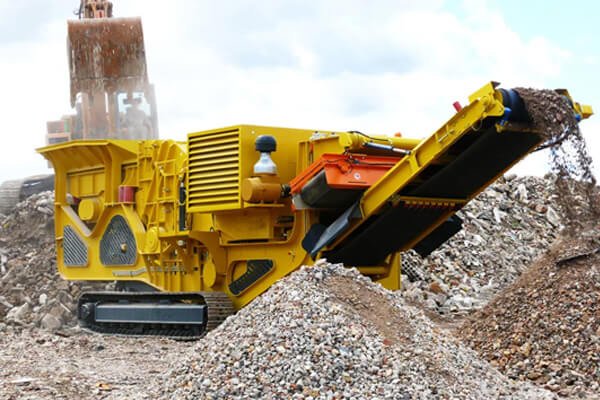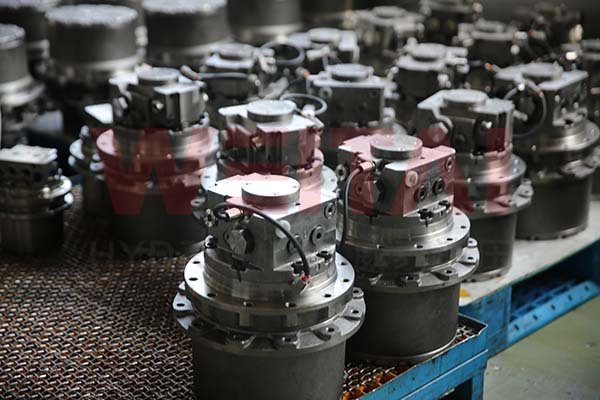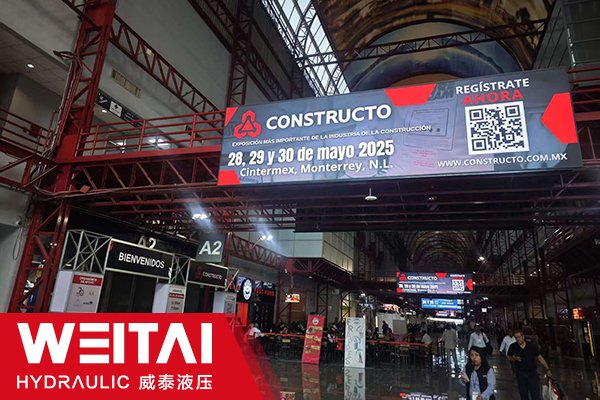Mobile hydraulics is a type of hydraulic technology used in mobile equipment that uses liquid (usually hydraulic oil) to transfer energy in a closed system to drive mechanical components to complete various work tasks. In this blog, we will talk about the future trends of the mobile hydraulics.

Intelligence and Automation
Intelligent control system: The future mobile hydraulic system will be equipped with a more advanced intelligent control system, which can monitor and analyze the system’s operating parameters, such as pressure, flow, temperature, etc. in real time, and automatically adjust the hydraulic parameters according to the actual working conditions to achieve precise control and optimized performance. For example, through the data fed back by the sensor, the control system can automatically adjust the output flow of the pump or the opening of the valve to adapt to different workloads and operating requirements, and improve the efficiency and reliability of the system.
Automated operation: Combined with the intelligent control system, mobile hydraulic equipment will achieve a higher degree of automated operation. For example, in the field of engineering machinery, excavators, loaders and other equipment can realize automatic excavation, loading, leveling and other operations through preset programs and algorithms, reduce the labor intensity and operating errors of operators, and improve work efficiency and quality. At the same time, automated operation can also improve the safety of equipment and reduce the risk of accidents.
Remote monitoring and diagnosis: With the help of Internet of Things technology, mobile hydraulic systems will realize remote monitoring and diagnosis functions. Equipment manufacturers and users can obtain equipment operating status information in real time through the Internet, discover and solve potential problems in a timely manner, and reduce equipment downtime and maintenance costs. Remote monitoring can also provide a basis for equipment maintenance, realize predictive maintenance, and increase the service life of equipment.
Electrification and Hybrid Power
Electric hydraulic technology: With the continuous development of electric vehicle technology, the application of electric hydraulic technology in the field of mobile hydraulics will gradually increase. Electric hydraulic components such as electric hydraulic pumps and electric hydraulic cylinders will replace traditional hydraulic pumps and hydraulic cylinders to achieve more efficient, energy-saving and environmentally friendly operation. Electric hydraulic technology can also achieve more precise control and faster response speed to meet the application needs of high-end equipment.
Hybrid power system: Hybrid power technology will become an important development direction for mobile hydraulics in the future. Combining internal combustion engines and electric motors can not only give play to the high-power output advantages of internal combustion engines, but also take advantage of the high efficiency and energy saving characteristics of electric motors to achieve comprehensive utilization and optimal configuration of energy. For example, in the starting and acceleration stages of engineering vehicles, electric motors can be used to provide power to reduce the load and fuel consumption of internal combustion engines; when driving at high speeds and working with heavy loads, they can switch to internal combustion engine drive to ensure the power performance of the equipment.
Energy Saving and High Efficiency
High-efficiency hydraulic components: The development and application of more efficient hydraulic components are the key to improving the energy efficiency of mobile hydraulic systems. For example, adopt a new hydraulic pump design to improve the volumetric efficiency and mechanical efficiency of the pump; develop low-friction hydraulic cylinders and hydraulic valves to reduce energy loss; optimize the layout and design of hydraulic pipelines to reduce fluid resistance, etc. Through these measures, the energy utilization rate of mobile hydraulic systems can be significantly improved and the operating cost of equipment can be reduced.
Energy recovery technology: Energy recovery technology will be widely used in mobile hydraulic systems. For example, in the braking process of engineering vehicles, by recovering and storing braking energy, it can be used for subsequent driving or other working links to improve energy utilization efficiency. Energy recovery technology can also be applied to the no-load operation stage of the hydraulic system to recover and store excess energy to avoid energy waste.
Lightweight design: In order to improve the energy efficiency and maneuverability of mobile hydraulic equipment, lightweight design will become a future development trend. Using high-strength and lightweight materials, such as aluminum alloys and carbon fibers, to manufacture hydraulic components and equipment structural parts can reduce the weight of the equipment, reduce energy consumption, and improve the transportation and operation convenience of the equipment.
Green and Environmental Protection
Environmentally friendly hydraulic oil: With the increasingly stringent environmental regulations, the development and use of environmentally friendly hydraulic oil will become an inevitable trend. Environmentally friendly hydraulic oil should have good biodegradability, low toxicity, low volatility and other characteristics to reduce pollution and harm to the environment. At the same time, environmentally friendly hydraulic oil should also have good lubrication performance and thermal stability to ensure the normal operation of the mobile hydraulics.
Reduce leakage and emissions: Strengthen the sealing design and manufacturing process of the hydraulic system to reduce the leakage of hydraulic oil and reduce pollution to the environment. At the same time, optimize the exhaust and drainage design of the hydraulic system to avoid the influence of air and moisture in the hydraulic oil on the system performance and improve the reliability and service life of the system.
Integration and Modularization
Integrated design: The various components of the hydraulic system are integrated to form an integrated hydraulic module, which can improve the compactness and reliability of the system and reduce the workload of installation and maintenance. For example, the hydraulic pump, hydraulic valve, hydraulic cylinder and other components are integrated into one module, and the internal pipe connection and control system are used to achieve collaborative work to improve the performance and efficiency of the system.
Modular design: The modular design concept is adopted to divide and standardize the functional modules of mobile hydraulic equipment. Users can choose different modules for combination and configuration according to their needs to achieve personalized customization and rapid upgrade of equipment. Modular design can also improve the versatility and interchangeability of equipment and reduce the production and maintenance costs of equipment.
Multidisciplinary Integration
Integration of hydraulics and electronic technology: The integration of hydraulic technology and electronic technology will continue to deepen, forming an integrated system of mechatronics and hydraulics. The hydraulic system is precisely controlled and adjusted through the electronic control system to achieve more complex functions and higher performance. For example, in the fields of aerospace, national defense, etc., mechatronics and hydraulics have been widely used, and will be promoted in more mobile hydraulic equipment in the future.
Integration of hydraulics and materials science: The development of materials science will provide new opportunities for mobile hydraulics technology. Research and development of new materials, such as high-strength, wear-resistant, and corrosion-resistant materials, for the manufacture of hydraulic components and equipment structural parts can improve the performance and service life of the equipment. At the same time, the characteristics of materials, such as shape memory alloys, are used to develop new hydraulic components to achieve more flexible and intelligent control.
At Last
WEITAI is a professional supplier of mobile hydraulics solutions. If you have any requirements, please contact us. We will do our best to help you.



